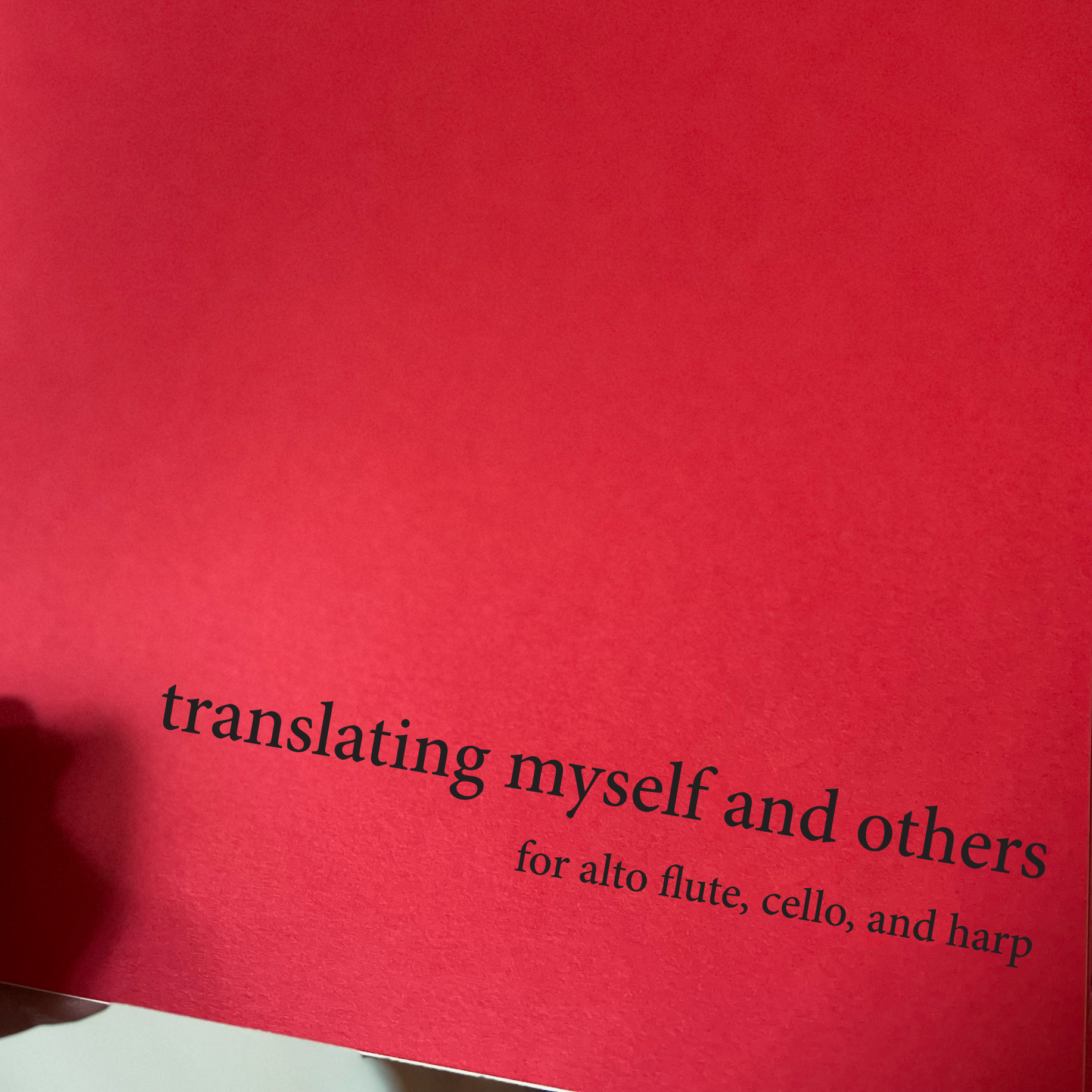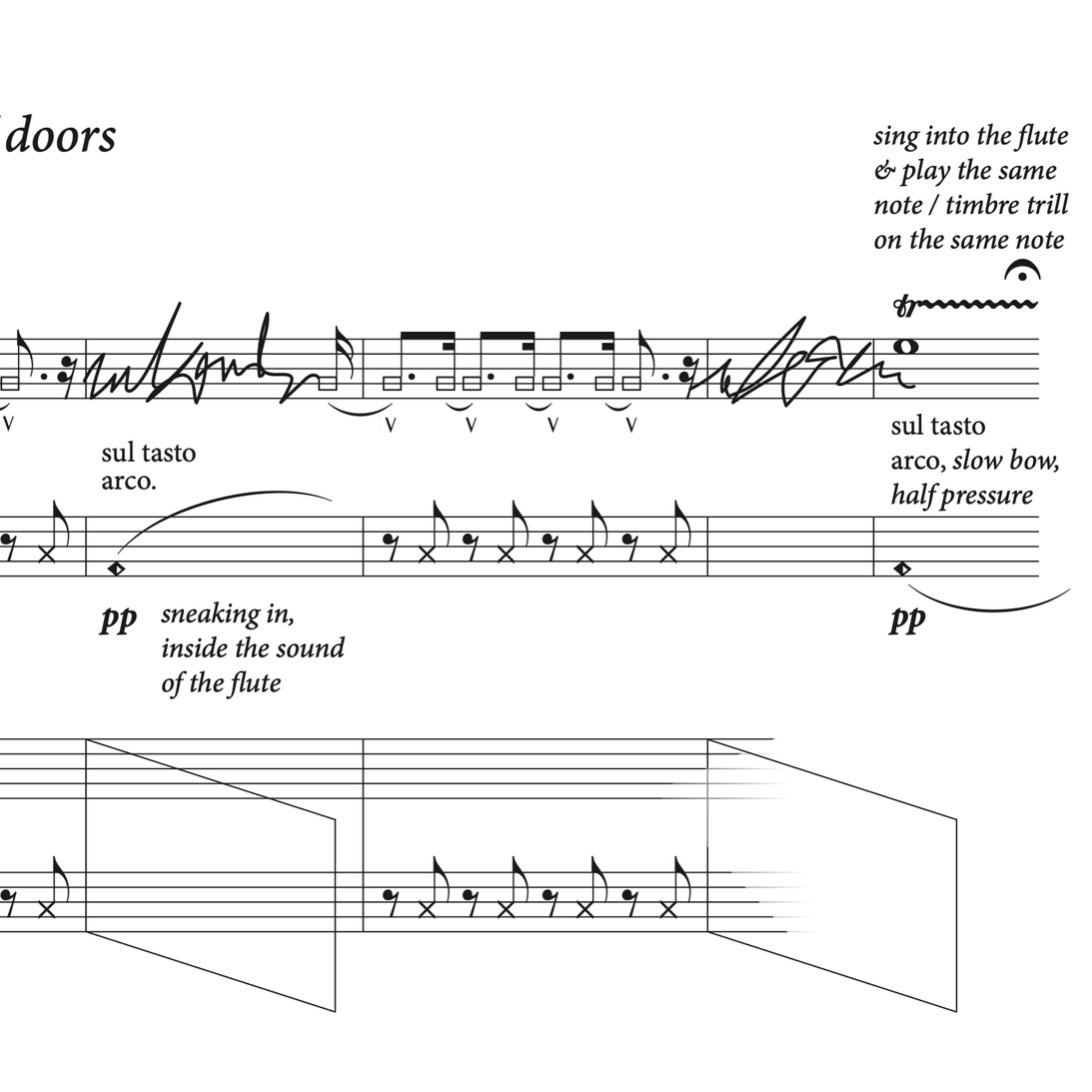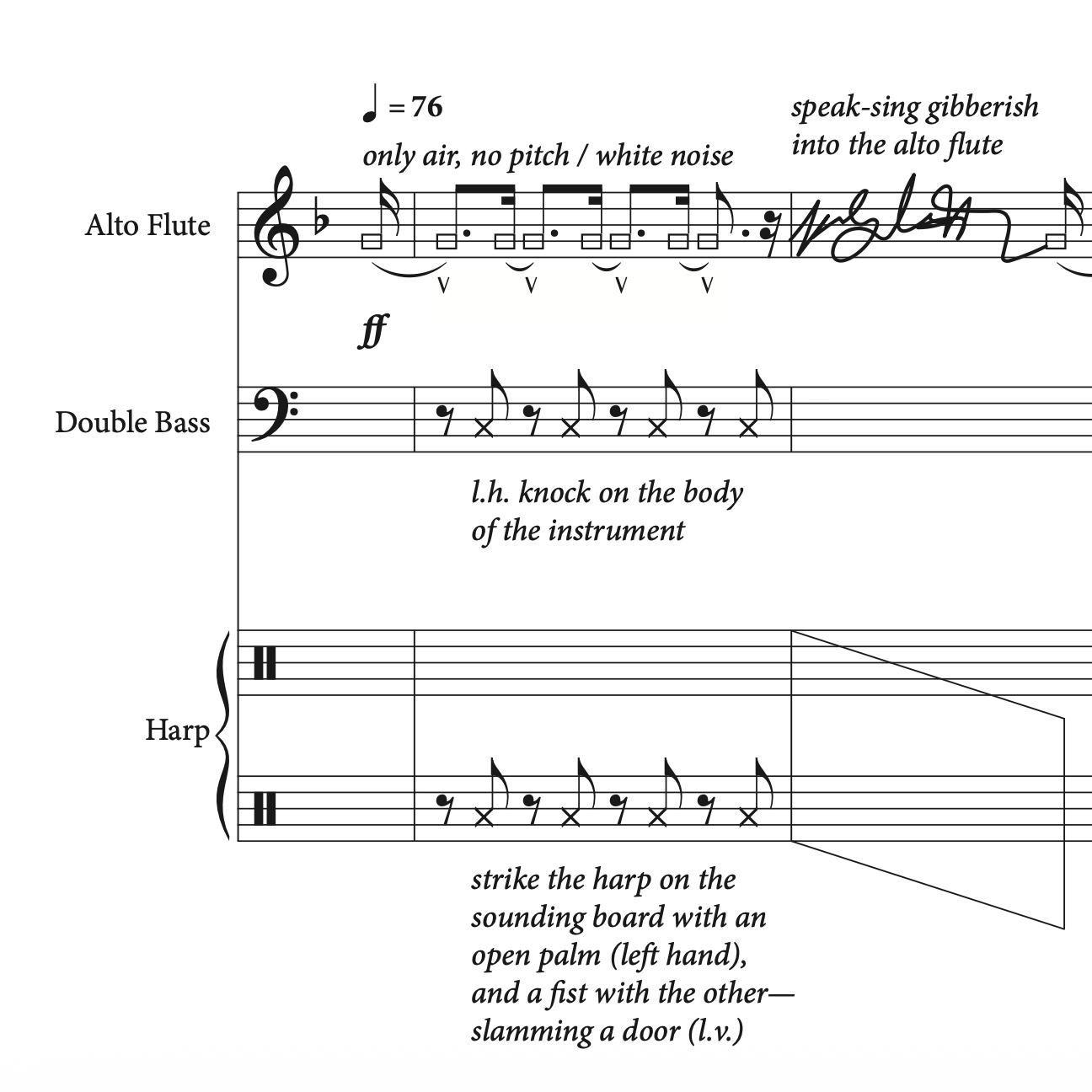translating myself and others — for alto flute, cello, and harp (2024)
This piece was made possible by a grant from the Fromm Music Foundation. Creation and development of the work was supported in part by residencies at Casa Wabi (Oaxaca, Mexico) and the Merwin Conservancy (Haʻikū, Maui). duration 8’
translating myself and others is based on the book of the same name by Jhumpa Lahiri. In asking questions such as, "who possesses a language, and why?" Lahiri's book is in many ways about belonging and unbelonging. She writes, ". . . to translate is to alter one's linguistic coordinates, to grab on to what has slipped away, to cope with exile."
Throughout the book, Lahiri poses both different ways of looking at translation: "a series of doors," (p. 13), "a forest, a bridge, a child, a lover, a sweater, a building, a triangle" (p. 11), and different ways of what it means to be a translator / engage with the act of translation, "to develop another pair of eyes, to experiment with weakness," (p. 18), "to cope with exile," (p. 75, as above).
Each movement in this musical work takes one of those perspectives and investigates it sonically: opening and closing doors, experimenting with weakness, looking for ways of relating or connecting.
Musical transcription and arrangement are forms of translation—finding the essence of a recording and hoping to translate that onto another instrument not just in a literal reproduction, but looking to capture the nuance of one sound and its meaning with the unique abilities of another instrument's sound. The last movement is a translation of one of my own works that itself is a translation of a recording I made finding the resonance of a bronze bell.
for Extended Music Collective
Set of performance scores for translating myself and others for alto flute, cello, and harp.
Digital download of the performance score for translating myself and others for alto flute, cello, and harp.
This PDF is only for individual use. Libraries wishing to acquire the score should purchase the print edition.
Digital download of the performance score for translating myself and others for alto flute, double bass, and harp.
This PDF is only for individual use. Libraries wishing to acquire the score should purchase the print edition.
Upcoming Performances
Saturday, April 4, 2026 — Megan Levin and friends perform translating myself and others on Chamber Music Hawaiʻi’s spring concert series, Honolulu, HI
Past Performances
Sunday, February 8, 2026 — Extended Music Collective performs translating myself and others and ko’u inoa, Pulcheria Concert Series, the chapel at Holland College, Leuven, Belgium
Friday, January 30, 2026 — Extended Music Collective performs translating myself and others and ko’u inoa, presented by Britten Pears Arts, at Jubilee Hall, Aldeburgh, Suffolk, UK
Sunday, March 30, 2025 — Extended Music Collective performs translating myself and others, Ruisfestival, Waregem, Belgium
Saturday, March 29, 2025 — Extended Music Collective performs translating myself and others, De Graaf, Ghent, Belgium
Saturday, November 23, 2024 — translating myself and others, Extended Music Collective, World Premiere, De Graaf, Ghent, Belgium



